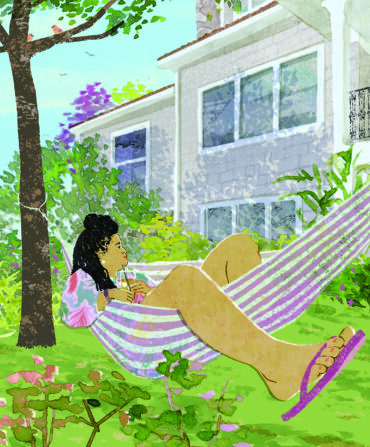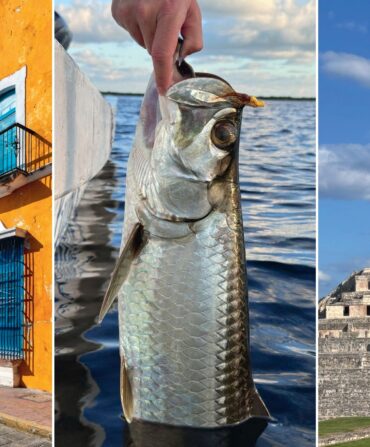Growing up in Powder Springs, Georgia, Becky Griffin had the kind of childhood “where you go out, the screen door bangs behind you, and you don’t come home until dinner.” But on a rare indoor journey to the library, she checked out a book that changed her life. “It was about bees, and I was completely fascinated,” she recalls. “I wish I had that book with its old-fashioned library card, and could see my name on it over and over and over again.” That youthful obsession drove her to earn a degree in biology from Kennesaw State and embark on a career in science education.

About a decade ago, while traveling statewide as the University of Georgia Extension’s school and community gardens director, Griffin had an epiphany: Instructors knew a lot about cultivating plants, “but when it came to pollinators, their view often was ‘If you see a bug, spray it.’” So she developed a program to educate gardeners about pollinators while also gathering data about them.
From a 2017 pilot program in fifty Georgia school and community gardens, Griffin’s now-annual Great Southeast Pollinator Census has expanded to the Carolinas and Florida, with a fifth state on tap. Between 2019 and 2023, 35,349 pollinator counts occurred, at such varied locations as the Atlanta History Center, the Monastery of the Holy Spirit, and a surprising number of craft breweries.
Armed with bug-identification guides Griffin’s team created, volunteers monitor a single plant for a quarter hour, logging and categorizing the insects that visit it—the number of which tends to astound participants, according to Griffin. “Gardeners say they spend time deadheading, but they don’t just watch a plant for fifteen minutes,” she says. After they do, “they are on fire.” One gardener may take part and recruit neighbors, and before you know it, a whole subdivision is transformed into a pollinator corridor.
The data has already proved valuable. Griffin and agricultural economist Sharon Kane used it to calculate that pollinators have a $635 million annual economic impact on the Peach State. Eagle-eyed counters have helped identify migration patterns possibly driven by climate change. Florida’s state butterfly—the zebra longwing, once found almost exclusively there and in the West Indies—has flitted as far north as Marietta, Georgia.
By giving regular folks tools to track pollinators and learn about their habitat requirements, Griffin is creating an army of conservationists. “As an individual, you might not be able to save the whales,” she says. “But you can go out in your own front yard and save the bumblebees.”
Homebase: Blairsville, Georgia
Affiliations: University of Georgia Extension
Side Quest: At age fifty-four, Griffin—who had returned to school to get her master’s degree—was the student speaker at UGA’s Griffin campus graduation. She envied her classmates’ ability to function without sleep but found ways to impress them in turn: “I wrote letters of recommendation and gave dating advice.”
Read about all of G&G’s 2024 Champions of Conservation.
Rebecca Burns is an author and journalist based in Athens, Georgia, where she teaches journalism at the University of Georgia. The former editor in chief of Atlanta magazine, Burns has contributed to Politico, the Guardian, and a wide range of other publications.








